Welcome to the wild and wonderful world of baby sleep patterns – where sleepless nights and power naps reign supreme. From the midnight feeds to the early morning wake-up calls, raising a baby is truly an adventure, and sleep often looks like that elusive treasure chest waiting at the end of the rainbow.
Whether you are a proud parent, a doting grandparent, or a sleep-deprived caregiver, it’s important to learn the basics of baby sleep patterns. Including making the most of some practical gadgets that can help you monitor your little one’s sleep. So, grab a cup of tea (or, let’s be real, a giant mug of coffee) and check out the science behind your baby’s sleep patterns.
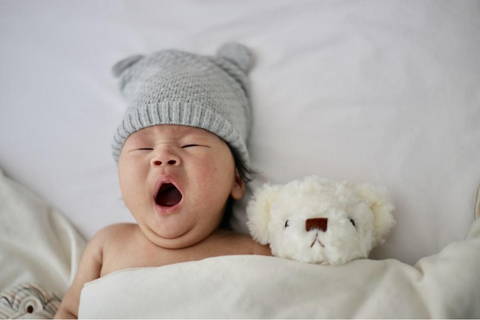
Baby Sleep Patterns
Sleep studies show that around 20-30% of infants wake up in the middle of the night throughout the first 2 years of their life. (1)
Luckily, as the child grows older, the number of awakenings per night decreases. Their ability to get a full night’s rest increases, with 50–75% of infants sleeping through the night when they are 12 weeks old, and at least 90% when they are 6 months old.
Sleep for a baby is a very dynamic process.
When a baby is born, the child doesn’t have an established circadian rhythm. So, the baby has to sleep across multiple intervals in short bouts during the day and night. This is why babies have different sleep patterns as they grow older.
Do have in mind, however, that every baby is different. Some babies are restless sleepers and may have trouble getting a shut-eye. While others may prefer to sleep more and fuss less. The guide below uses general estimates that may be helpful when studying your baby’s sleep pattern based on age.
Newborn
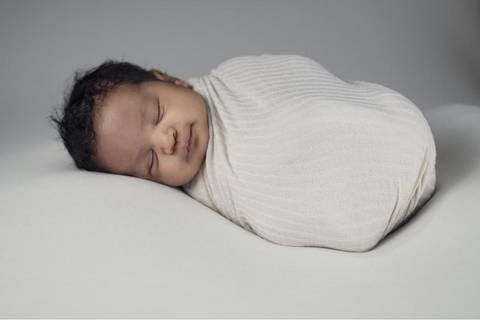
After the baby has just been born, the infant usually sleeps 16 to 17 hours per day. Newborns need a lot of sleep for their cognitive and physical development. (2)
What is specific about newborns is the very short sleep cycles. Infants stay asleep for 1 to 3 hours at a time. They have small stomachs, so they need to feed frequently. Sleep helps them conserve energy and allow their body to focus on growth and development.
During the short sleep cycles, infants move between light and deep sleep. They are spending more time in REM (rapid eye movement) sleep compared to adults. This is crucial for their brain development. Although newborns are spending 16 to 17 hours every day on sleep, around 50% of this is in REM sleep. (3)
3 to 6 Months Old
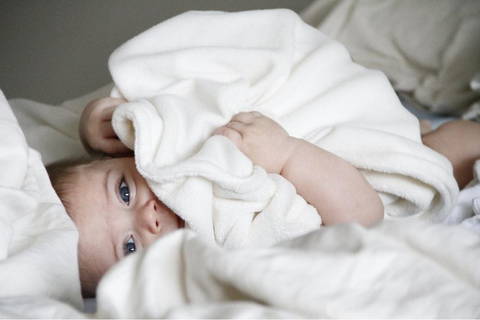
When the baby is 3 to 6 months old, the sleep pattern usually reduces to 13 to 14 hours per day. The longest sleep period is roughly 6 hours.
The baby is starting to develop more regular sleep patterns. They sleep for longer at night and have shorter naps during the day. The sleep cycles can be 120 minutes long. Although the baby is still spending more time in REM sleep than adults, the duration decreases as they get older. (4)
6 to 12 Months Old
Your baby is starting to have a more consolidated sleep at night. Babies are often sleeping 10 to 14 hours a day, and tend to sleep the most at night. The sleep cycle lengthens, and they are spending less time in REM sleep. (5)
Of course, the baby’s behavior will vary, but you can expect the child to become more aware of their surroundings. For example, you may notice the child getting fussier when you try to leave the room. That’s because the baby feels safe with you around.
12+ Months Old
By 12 months of age, the longest sleep period increases to around 8 to 9 hours on average. The baby should get from 11 and 14 hours of sleep, in total. (6)
During this period, the need for long and frequent naps drastically reduces. The child’s body is growing, and they now have more energy to enjoy the day and play, without feeling tired too quickly and too soon.
Benefits of Using a Baby Sleep Monitor at Home
As a parent, all you want for your baby is to sleep soundly through the night. But, let’s face it, sometimes, it can be hard to relax when you are constantly worrying about their sleep. That’s where a baby sleep monitor comes in – it is like having an extra set of eyes and ears to watch over your little one while they slumber.
With a device, like the Babytone Baby Sleep Monitor, you can rest easy knowing that your baby is getting quality sleep. You can use this monitor to collect some valuable insight into your baby’s sleep and breathing patterns. Here are some benefits of using a baby sleep monitor at home.
· Early Detection of Sleep Disturbances
A sleep tracker, like the Babytone Baby Sleep Monitor, provides accurate measurements of your baby’s sleep patterns, movement, average oxygen level, and heart rate. The tracker alerts you to any changes that could be a sign of a health problem.
· Easy Monitoring From Afar
One of the biggest advantages of using a baby sleep monitor is the ability to monitor your baby’s sleep from a distance. As a parent, you want to keep an eye on your child without disturbing them. Also, sometimes, it is not practical to be in the same room as your baby.
With the tracker, you can easily monitor your baby’s sleep while doing things around the house. For example, you can focus on your household chores or work on a project. Whatever the case, this device can help put your mind at ease.
· Improve Sleep Patterns
By providing you with real-time readings, the monitor can help reduce your anxiety and worry about your baby’s sleep cycle. You can use the device to get some sense of reassurance and see if anything is disrupting your baby’s sleep patterns.
With a reliable and high-quality baby sleep monitor, you can adjust your sleep routine accordingly and get that much-needed Zs. If your baby experiences some health problems that affect their sleep, be sure to talk to a specialist.
References
1. https://www.ncbi.nlm.nih.gov/pmc/articles/PMC5440010/
2. https://www.ncbi.nlm.nih.gov/pmc/articles/PMC2768951/
3. https://www.chop.edu/conditions-diseases/newborn-sleep-patterns
4. https://www.pregnancybirthbaby.org.au/sleep-patterns-for-babies
5. https://www.betterhealth.vic.gov.au/health/healthyliving/typical-sleep-behaviour-nb-6-12-months
6. https://www.sleepfoundation.org/children-and-sleep/how-much-sleep-do-kids-need





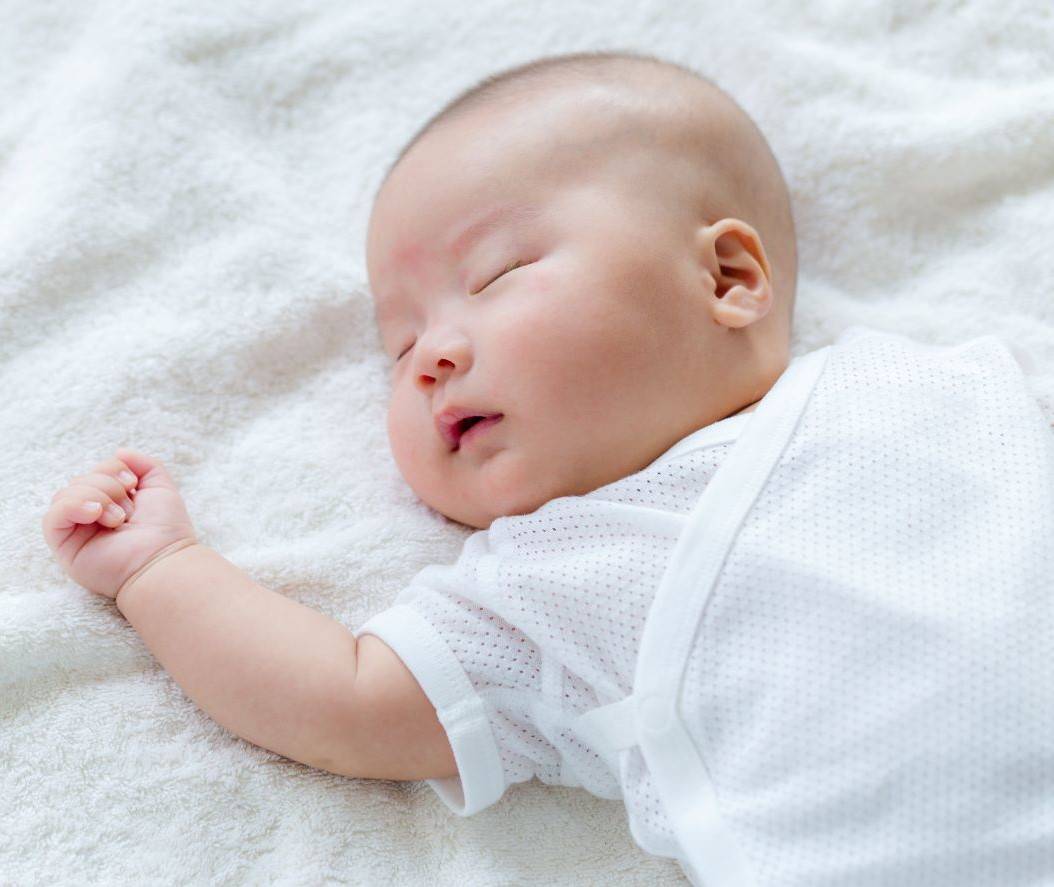
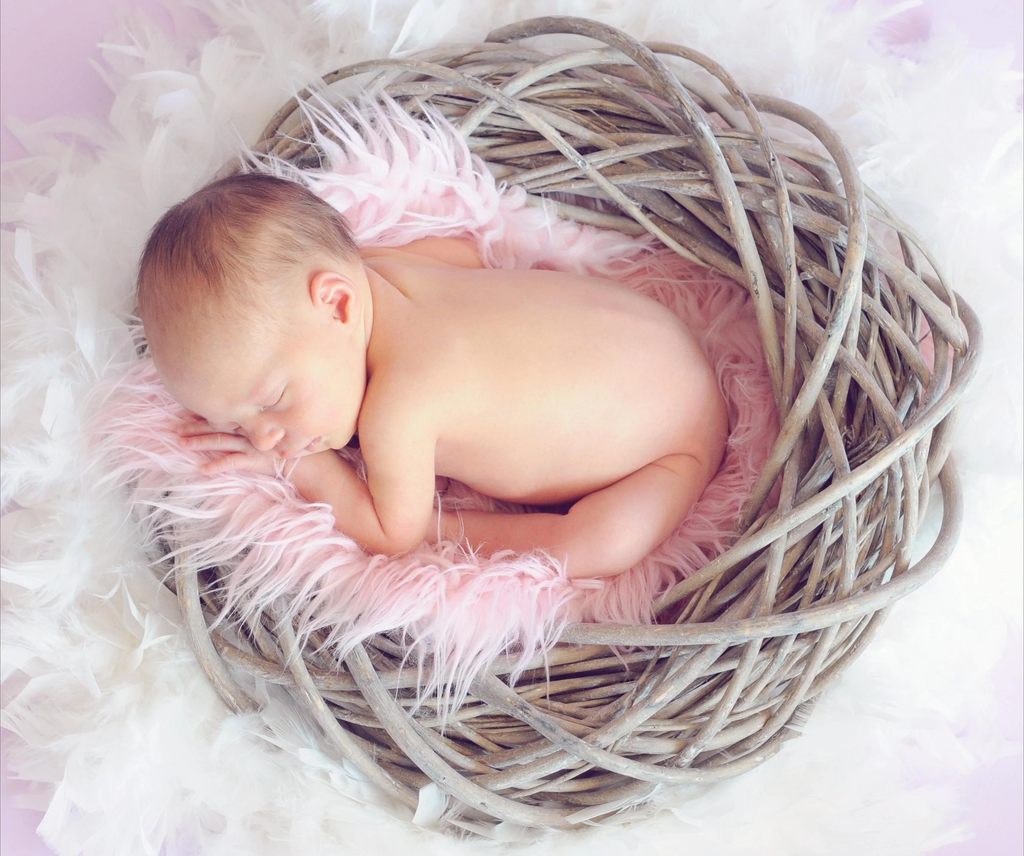

Leave a comment